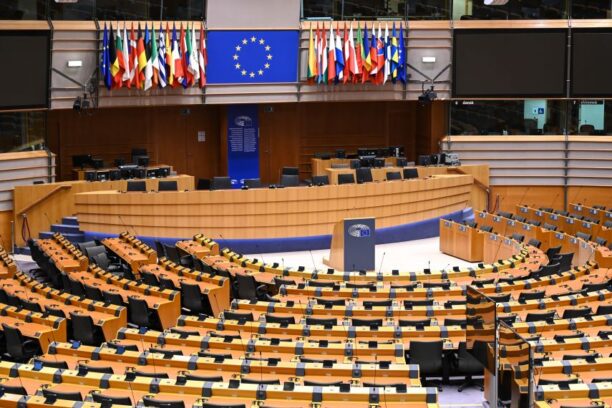In the context of current GHG/carbon emissions disclosure and management trends, many companies tend to be short sighted. This is rather ironic given the long term risk and solutions. I said in Killing Sustainability:
Many, if not most, of the companies signed up for Net Zero commitments are not anticipating making actual reductions, at least not anytime soon. Instead, they are over-relying on buying carbon offsets to meet their goals.
Furthermore, the multi-decade time horizon frequently committed to in Net Zero pledges (many times, up to the year 2050) means today’s executives/managers take credit for climate action, while kicking the can down the road for successors to face tough decisions.
Three articles from the past few days demonstrate this view is gaining momentum.
Ignoring Embedded Carbon Emissions
This report from Bloomberg discusses a well-worn theme – ignoring Scope 3 emissions. But this highlights the issue in an industry and context that hasn’t received much attention – construction and hotels.
When the Hotel Marcel opened in New Haven, Conn., in May 2022, it checked all those boxes as part of a mission to be the US’s first net-zero carbon-emissions hotel. But for all of the ways in which the Marcel makes real efforts to be a green marvel, it missed one huge consideration: embodied carbon. Embodied carbon is the term that encapsulates all the harmful greenhouse gases emitted during renovation and construction of a building—an outsize part of any project’s footprint.
The Marcel’s triple-glazed windows? Good for keeping heating and cooling costs down, but a massive carbon emitter to manufacture. The hotel’s new, more efficient mechanical systems? They, too, emit large amounts of carbon during fabrication, transportation, and installation. Demolition of old walls? More carbon. Drywall, interior finishes, and bath fixtures for all 169 rooms? Carbon, carbon, carbon—all ignored in the Marcel’s net-zero promise.
“The net-zero objective is for operations,” the project’s architect Bruce Becker tells me, acknowledging the fact.
Embodied carbon in construction—contributing to at least 21% of global emissions, according to Brightworks Sustainability—is hardly a whisper amid the noise, if it’s mentioned at all, especially given how frequently hotels renovate compared with other types of large buildings.
Questionably Valid Historic Carbon Credits
Insurance broker Marsh McLennan interviewed Professor Mark Maslin from University College London, who identified thousands of historical credits are distorting the carbon market.
… what we found is that lots of potential credits were lodged but never used because between 2009-2015, climate negotiations stalled and the climate carbon market languished. So we have all these historic credits which don’t actually add additionality, as the carbon in them has already been saved and the economics of the world has moved on. For example, you can still buy renewable energy credits, which, considering that renewable energy is actually cheaper than fossil fuel energy at the moment, doesn’t make any sense!
The problem is that there is no international governance; there are no rules and regulations. The carbon market is governing itself. In a properly regulated market, you would have rules for how credits were retired if not used, and you would do this in an orderly and clear and transparent manner.
What we have is a voluntary market. So you have some companies like Total actually buying 10-year-old credits from a Chinese wind farm that has already been built and has been operating for 10 years, but still has credits that it sells to Total. And Total then says, “Look, this huge tanker of liquid gas is now carbon-neutral.” But the credits did not help build the wind turbines, because they were already built, so that credit is not additional. In fact it is just extra profit and greenwash.
Climate Scientists Have a Bad “Eureka!” Moment
In an illuminating article from The Conversation, a group of climate academics (James Dyke of University of Exeter, Robert Watson of University of East Anglia, and Wolfgang Knorr of Sweden’s Lund University) admit that Net Zero positioning is hollow:
Collectively we three authors of this article must have spent more than 80 years thinking about climate change. Why has it taken us so long to speak out about the obvious dangers of the concept of net zero? In our defence, the premise of net zero is deceptively simple – and we admit that it deceived us.
[Net Zero] is a great idea, in principle. Unfortunately, in practice it helps perpetuate a belief in technological salvation and diminishes the sense of urgency surrounding the need to curb emissions now. We have arrived at the painful realisation that the idea of net zero has licensed a recklessly cavalier “burn now, pay later” approach which has seen carbon emissions continue to soar. It has also hastened the destruction of the natural world by increasing deforestation today, and greatly increases the risk of further devastation in the future.
What This Means
It should not be a revelation for readers if I say that Net Zero claims – while trendy – are risky for companies. Scrutiny and skepticism of the claims is growing to the point of becoming mainstream. The SEC’s climate disclosure proposed release, which we have covered extensively since its passage by the Commission – including last week’s massively successful virtual Climate Disclosure Event (replay available to PracticalESG.com members) – would require registrants to disclosure their use of offsets and certain risks & assumptions related to them.
Rather than simply jumping on the Net Zero bandwagon for purposes of sprinkling ESG fairy dust on shares (or perhaps more bluntly putting lipstick on a pig), companies should carefully evaluate their planned Net Zero strategy and execution. Investors and the public are more likely to value candor about the difficulties of carbon management realities and well as concrete plans to make difficult decisions about actual emissions reductions, backed by targets and metrics.
We have developed several checklists and guidebooks on preparing for climate disclosures, validating the underlying data, determining materiality for purposes of ESG and other topics relevant to establishing a sound foundation for carbon management and other ESG strategies and execution.










